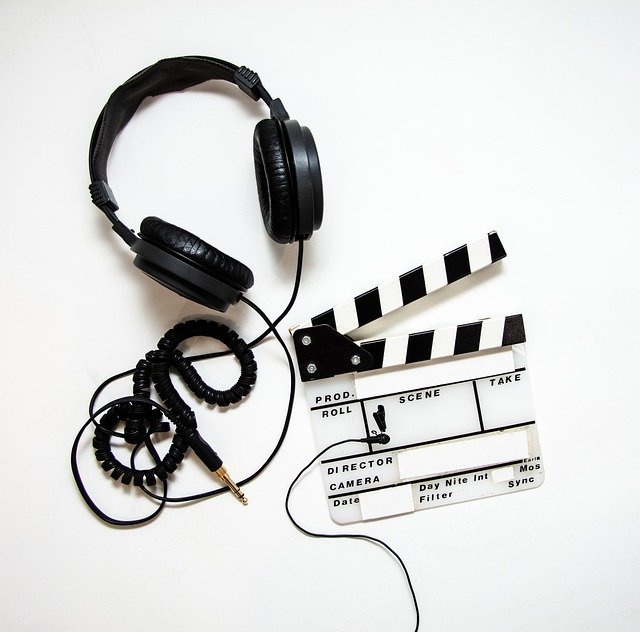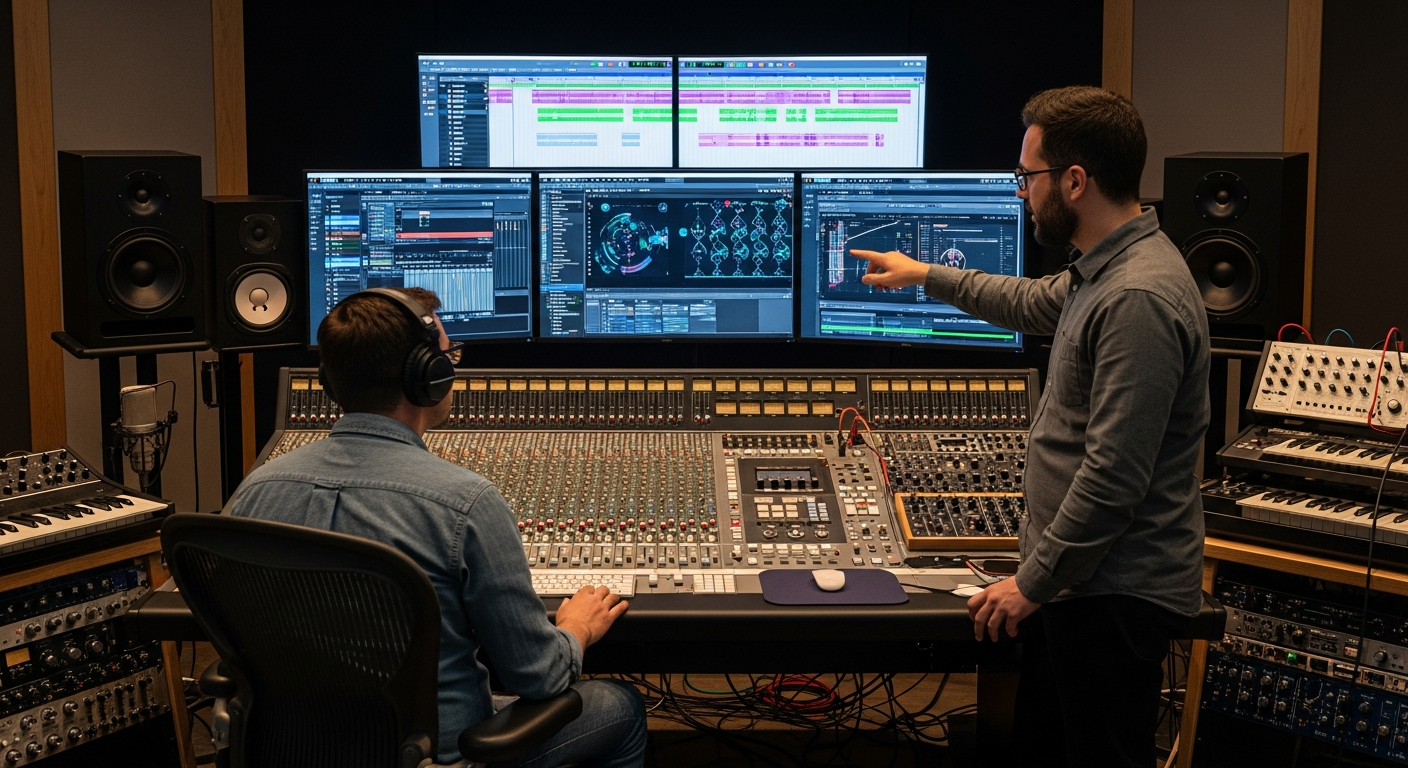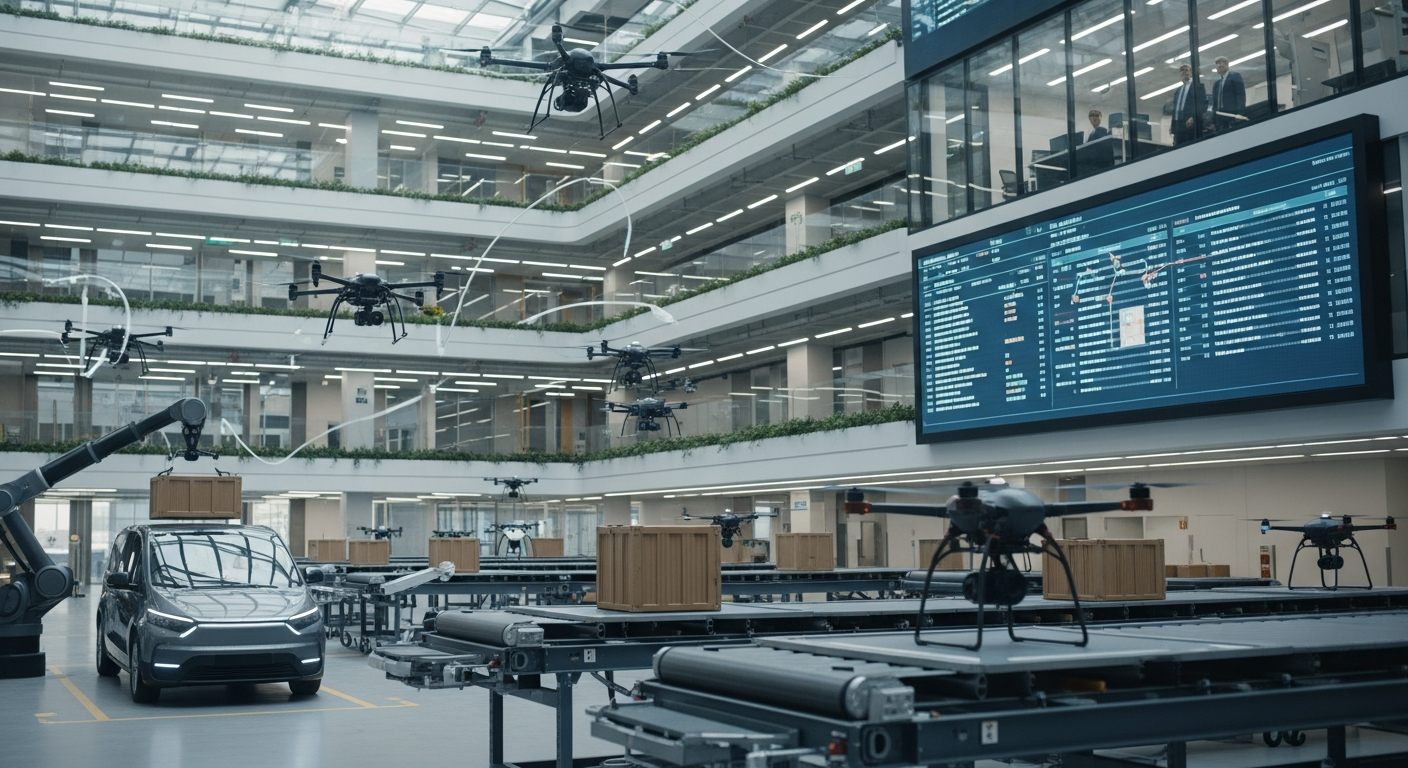Cinematic Soundscapes: The Hidden Art of Film Scoring
In the realm of filmmaking, one element often goes unnoticed yet wields immense power in shaping our emotional experience: the film score. This invisible art form, crafted by talented composers and musicians, has the ability to elevate a scene from ordinary to extraordinary, transforming the way we perceive and connect with the story unfolding on screen. As we delve into the world of cinematic soundscapes, we'll explore the intricate process of film scoring, its evolution over time, and the profound impact it has on the art of storytelling in cinema.

The Composer’s Canvas
Film scoring is a unique form of musical composition that requires a delicate balance of creativity and technical skill. Composers must work closely with directors to understand the emotional arc of the film and create music that complements and enhances the visual narrative. This process often involves developing character themes, establishing mood and atmosphere, and crafting musical cues that align precisely with key moments in the film.
The Technical Wizardry Behind the Scenes
Modern film scoring involves a complex blend of traditional orchestration and cutting-edge technology. Composers now have access to vast libraries of digital instruments and sound effects, allowing them to create rich, layered soundscapes that were once impossible to achieve. The use of synthesizers and electronic elements has also expanded the sonic palette available to composers, enabling them to craft unique and innovative scores that push the boundaries of traditional film music.
The Psychology of Film Music
The impact of film scores on audience perception is profound and multifaceted. Music has the power to manipulate emotions, create tension, and guide the viewer’s attention to specific elements on screen. Studies have shown that the right musical accompaniment can significantly enhance memory retention of film scenes and influence the audience’s interpretation of character motivations and plot developments. This psychological aspect of film scoring is a crucial tool in the filmmaker’s arsenal, allowing for subtle yet powerful storytelling techniques.
Iconic Scores and Their Lasting Legacy
Throughout the history of cinema, certain film scores have transcended their original purpose and become cultural touchstones in their own right. John Williams’ iconic themes for Star Wars and Jaws, Hans Zimmer’s powerful compositions for Inception and Interstellar, and Ennio Morricone’s unforgettable melodies for The Good, the Bad and the Ugly are just a few examples of scores that have left an indelible mark on popular culture. These compositions not only enhanced the films they accompanied but also inspired generations of musicians and composers.
The Collaborative Nature of Film Scoring
Creating a film score is rarely a solitary endeavor. Composers often work closely with a team of orchestrators, conductors, and musicians to bring their vision to life. The collaborative process extends to the filmmakers as well, with composers attending early screenings, discussing thematic elements with directors, and refining their work through multiple iterations. This symbiotic relationship between music and visuals is at the heart of successful film scoring.
The Evolution of Film Scoring in the Digital Age
The advent of digital technology has revolutionized the film scoring process. Composers can now create and edit complex musical arrangements on computers, allowing for greater flexibility and experimentation. Additionally, the rise of streaming platforms and online content has opened up new opportunities for composers to showcase their work in a variety of formats, from short films to episodic series. This democratization of the industry has led to a diverse range of musical styles and approaches in contemporary film scoring.
The Unsung Heroes of Cinema
Despite their crucial role in filmmaking, film composers often work behind the scenes, their contributions sometimes overlooked by casual moviegoers. However, industry recognition for film scoring has grown over the years, with prestigious awards such as the Academy Award for Best Original Score highlighting the importance of this art form. Film music concerts and soundtrack albums have also gained popularity, allowing audiences to appreciate these compositions outside the context of the film.
The Future of Film Scoring
As technology continues to advance, the future of film scoring holds exciting possibilities. Virtual reality and interactive media present new challenges and opportunities for composers to create immersive audio experiences. The integration of artificial intelligence in music composition is another frontier that may shape the future of film scoring, potentially offering new tools for composers to explore creative possibilities.
In conclusion, the art of film scoring remains a vital and evolving aspect of cinema, blending creativity, technology, and emotion to enhance storytelling in ways both subtle and profound. As we continue to explore new frontiers in filmmaking, the power of music to move, inspire, and transform our cinematic experiences will undoubtedly remain at the heart of this captivating art form.






